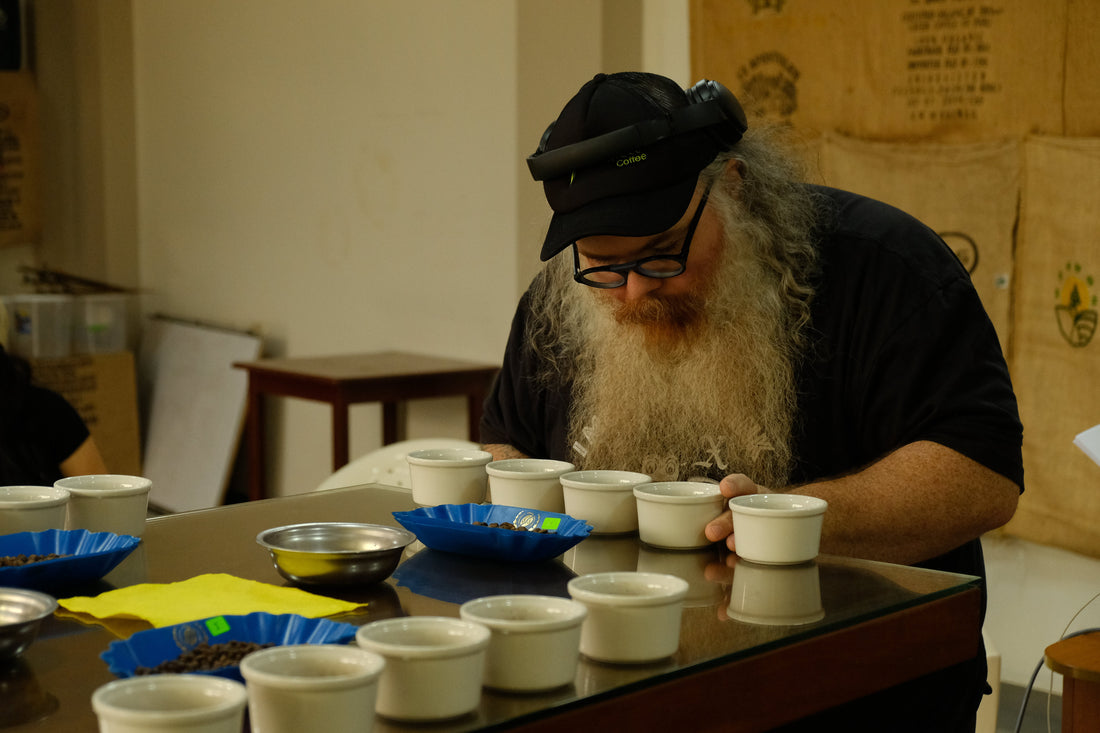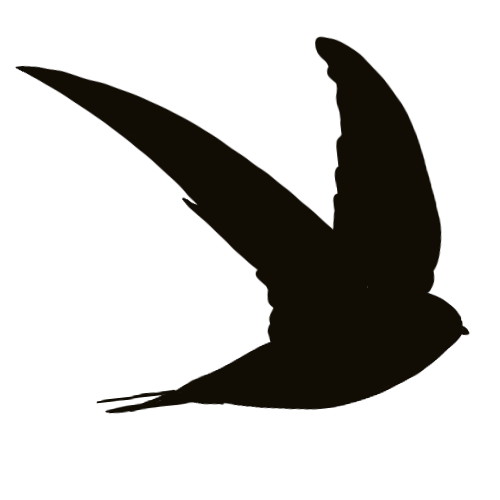
I Hired a Tariffs Attorney: Here's What I Learned
Share
DISCLAIMER: This reflects my understanding based on professional consultation. Please consult your own customs attorney for advice specific to your situation and fact check everything you read! Swift Coffee Sourcing and Emily McIntyre assume no responsibility for any actions you may take because of this information or any consequences you experience.
 The misty town of Rodriguez de Mendoza, where our Amazonas, Peru partners work. August 2025
The misty town of Rodriguez de Mendoza, where our Amazonas, Peru partners work. August 2025
I just don't want to pay reciprocal tariffs.
I recently got this idea that maybe I could hold off paying reciprocal tariffs, just for a bit. That maybe the penalties would be simply financial and less than the cost of the tariffs. That maybe I only had to hold onto my money until the November 5th Supreme Court hearing, then it would turn out I never needed to pay in the first place—so no need to "file for a rebate" or whatever method ended up being the recommended action for companies like mine to take.
The truth is, I have not emotionally or psychologically accepted that I have to pay tariffs on coffee I import. Remember, I took a break from importing or exporting coffee for a year or so. Swift's first containers landed earlier this month. The recent new reciprocal tariffs just seemed… optional. A fever dream. A temporary mass hallucination. Maybe, an opportunity for arbitrage or something unique. It was, at least, my duty to explore all possibilities through proper research.
However, I'm not stupid, and I have people to answer to. I would never knowingly take a radical, risky action in my business and skip the footwork. So my team and I have spent the last few weeks (in particular, since the September 5 Executive Order came out) digging deep. We pestered our customs broker until they nearly snapped, we called the CBP (zero help btw, they are just doing what they are told) for clarification, we learned more than we knew was possible about the concepts of entry for consumption, and we hired a reputable specialized law firm to outline the right approach.
I thought y'all would like to know the information I paid rather a lot for, since we are all in this shifting foggy sea of confusion over the topic of tariffs for coffee.
Is there any way to avoid paying tariffs right now?
No. There is not.
The extremely simple version of this is: if you don't pay ANY import duties on time, the US CBP (Customs and Border Protection) will charge you a lot of money in liquidated damages, and if you continue delinquent you will lose your customs bond which allows you to clear shipments in a timely fashion.
You won't be able to access your goods. For, like, a long time—months, or more.
And good luck bringing anything else into the country.
It is, as my attorney said with a wry grin lifting his left cheek, "a pretty heavy hammer.” He added that given the steep and sudden increase in duty payments, many companies these days are struggling to make the payments on time and are thus compromising their customs bond.
 Swift's Director of Sourcing, Michael McIntyre, cupping in Cajamarca, Peru in August 2025
Swift's Director of Sourcing, Michael McIntyre, cupping in Cajamarca, Peru in August 2025
But what about the Sep 5 Executive Order that exempted coffee?
Yeah. Me too.
There was all this excitement. I had several containers landing on a timeline that I personally interpreted based on my reading of the EO would mean that I wouldn't have to pay duties on the coffee in them. That was when I first learned about the concept of when goods are entered for consumption vs. when they arrive in port.
But here's the thing: the Executive Order did NOT exempt coffee.
Per my conversation with my customs attorney, Undecaffeinated, unroasted Arabica coffee (Harmonized Tariff Code 0901.11.100) was listed as an EXAMPLE of the TYPES of products which MIGHT be exempted, if the origin country removed their tariffs on US goods.
So not only was the "exemption" really just a smokescreen but also it isn't an exemption for the entire product but rather the possibility of an exemption country by country.
The EO is, with its Annexes, more than 110 pages long. It's understandable that folks like me would get excited when it hit, especially with the hopeful reporting giving me ideas.
But TLDR; nothing changed.
Well, what about the Nov. 5 judgement?
BTW, Nov. 5 is just the oral arguments. The Supreme Court releases its judgements after the date of the arguments, so it's not quite as exciting as it could be.
But yeah, it's interesting.
There are two plaintiffs suing for a judgement that the President exceeded his authority in signing the reciprocal tariff duties into law, and thus all duties paid under these orders should be reimbursed back to the companies who paid them. The Supreme Court has agreed to put this issue up front on the docket and it will be a fascinating day for all of us in the coffee industry, since so much rides on the decision.
According to my attorney, the plaintiffs are pursuing a legal action in court using the 1581(i) mechanism to prove that essentially these are unjust duties.
If the decision is in their favor, and depending on how the court rules, it will be interesting to see the mechanism for returning everyone the billions of dollars which have been paid under the category of reciprocal tariffs, but it likely will happen, since til now there hasn't been a way for the US Government to keep money which has been determined to be unlawfully extracted from its citizens.
My attorney said not to worry much about the how of getting the money back if the judgement goes that way. "Assuming the Supreme Court agrees it was outside [the President's] authority, plenty of us out there will figure out how to get our money back."
Is there any way to lessen the impact of tariffs?
I was curious to learn that it is possible to spread out the effect of duties by entering the goods (with the help of a qualified customs broker of course) into bonded warehouses, and essentially filing for entry when the goods leave the warehouse. So you would pay for the duties as you release the product—far preferable to all up front. You do, however, still have to pay the tariffs.
If you ship goods to Canada, you could obviously bypass the US entry and bring them straight to a Canadian port, but there are a couple ways to avoid paying double duties. The first is by entering the goods into a US-based bonded warehouse using the above method, and then you do an "Import for Export" and pass the goods to Canada through a bonded truck. It's like the goods never really entered the US.
The second is you can file a drawback, where if everything is properly documented, and you prove you've paid for two different country's customs, you can get the US customs reimbursed.
Conclusions
Yeah, I'm paying my tariff duties even if I personally do NOT appreciate the additional charge. The cost to withhold the payments is far too high to consider it. If in the future I can get the money back, boy, will Swift's books look better. I'll pop a seltzer to celebrate.
Business is full of these intense, stressful, and annoying inconveniences.
One year I remember my partners and I were moving coffee from a producing region for export Everything had been loaded in the government-approved truck the day before, but when we showed up to get the official seal for transport, we were informed that we had to pay 15% of the exportable value (not even 15% of the COGS!) to get approval to move it. Believe you me, that was a year the numbers did not break even. That was a scramble.
If you are feeling frustrated, inconvenienced, financially challenged, worried, and anxious due to the rapidly-changing, uncertain environment… you are not alone. So does everyone else.
But we did sign up for this.
This is the world we are working within.
So, let's do our best. Let's communicate together as well as we can, and let's advocate through the proper legal channels to get what we need to continue moving this remarkable product around a world that runs on it.
And if you have any questions, comments, or insight to share on customs duties right now, please let me know.

Michael and Emily McIntyre celebrating a sweet Portland street in Summer of 2025. It really will be ok.
